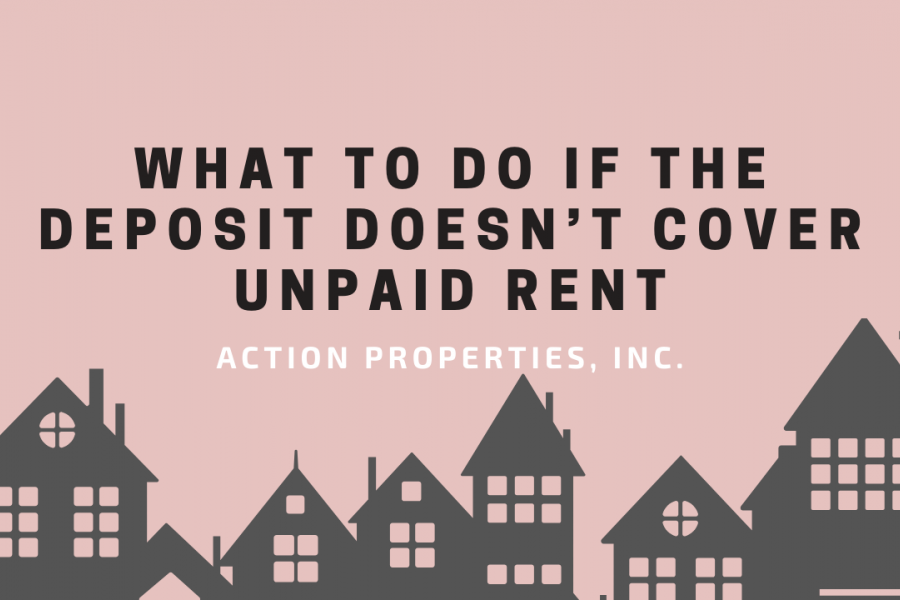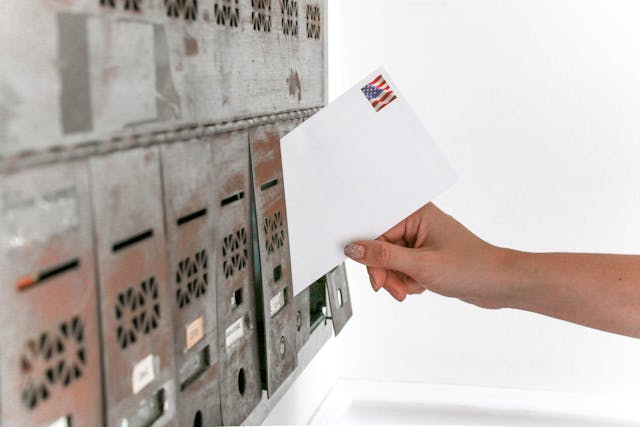
Ever faced a frustrating scenario where a security deposit falls short of covering unpaid rent? It's a common headache for landlords, but there are practical steps and strategies available to navigate this challenge. From understanding your legal rights to exploring negotiation tactics, we've got you covered.
In this article, we'll delve into actionable tips to help you recoup unpaid rent effectively and minimize stress along the way. Whether you're a seasoned landlord or new to the game, we can tackle this issue together and ensure your property investment remains a rewarding venture.
Best Practices for Landlords to Consider
Here are the best practices landlords can consider if the deposit doesn't cover unpaid rent:
Engage in Tenant Communication
Effective communication is key when addressing unpaid rent. Initiate a conversation with the tenant in a non-confrontational manner to understand their circumstances. Listen empathetically to their reasons for non-payment, which could range from financial difficulties to personal challenges.
By fostering an open dialogue, you can explore potential solutions together, such as adjusting the payment schedule or offering assistance in finding financial support resources.
Issue a Formal Demand Letter
When informal communication fails to resolve the issue, sending a formal demand letter is the next step. This letter should clearly state the amount of unpaid rent, the due date, any late fees or penalties incurred, and a deadline for payment. Be sure to send the letter via certified mail or another trackable method to ensure proof of delivery.

In the demand letter, also mention the consequences of continued non-payment, such as legal action or eviction proceedings. While firm in tone, the letter should maintain professionalism and adhere to local landlord-tenant laws.
Evaluate Small Claims Court Options
If efforts to resolve the matter outside of court prove unsuccessful, small claims court can be an option for landlords seeking to recover unpaid rent. Before filing a claim, gather all relevant documentation, including the lease agreement, rental payment history, communication records, and the demand letter sent to the tenant.
Small claims court typically handles cases involving relatively small amounts of money, making it a cost-effective and accessible option for landlords. Present your case clearly and concisely, and be prepared to provide evidence supporting your claim for unpaid rent.
Perform Routine Property Inspections
Regular property inspections are essential for landlords to maintain the condition of their rental units and identify any issues early on. Schedule routine inspections according to the terms outlined in the lease agreement, ensuring proper notice is given to the tenant as required by local laws.
During inspections, thoroughly assess the property for any damage, maintenance needs, or lease violations that may affect the tenant's obligation to pay rent. Document your findings with detailed notes and photographs, and address any concerns with the tenant promptly.
Conduct Move-Out Walkthroughs
Conducting thorough walkthroughs with the tenant before their move-out date is crucial for assessing the condition of the property and determining any deductions from the security deposit.

Schedule the walkthrough well in advance and provide the tenant with a checklist of items to review together, including cleanliness, damage, and any required repairs. Document the condition of each area of the property using photographs or videos, noting any discrepancies between the initial move-in condition and the current state.
Offer a Payment Plan
In cases where tenants are unable to pay the full amount of unpaid rent upfront, offering a payment plan can provide a practical solution for both parties. Work with the tenant to establish a reasonable repayment schedule based on their financial capabilities and the total amount owed.
Clearly outline the terms of the payment plan, including the amount and frequency of payments, any applicable late fees or interest charges, and consequences for defaulting on the agreement. Document the payment plan in writing and ensure both parties sign the agreement to formalize the arrangement.
Seek Legal Advice
Consulting with a legal professional specializing in landlord-tenant law is essential for landlords navigating disputes over unpaid rent. A knowledgeable attorney can provide invaluable guidance on the applicable laws and regulations in your jurisdiction, helping you understand your rights and obligations as a landlord.
They can also assess the specific circumstances of your case and offer tailored advice on the most effective strategies for recovering unpaid rent.
Explore Mediation Services
Mediation can be an effective alternative to resolving disputes over unpaid rent outside of court. A neutral third-party mediator facilitates constructive communication between you and the tenant, helping identify common ground and reach a mutually acceptable resolution.

Mediation sessions provide a non-adversarial environment where both parties can express their concerns and work collaboratively towards finding a solution.
Review Lease Agreement
Thoroughly reviewing the lease agreement is crucial for landlords seeking to enforce their rights regarding unpaid rent. The lease agreement serves as a legally binding contract between you and the tenant, outlining the terms and conditions of the tenancy, including rent payment obligations.
Pay close attention to provisions related to rent payment, late fees, security deposit usage, and remedies for non-payment. If necessary, seek clarification from a legal professional to ensure compliance with applicable landlord-tenant laws and regulations.
Document Everything
Maintaining comprehensive documentation is essential for landlords involved in disputes over unpaid rent. Keep detailed records of all communication with the tenant, including emails, letters, and notes from in-person or phone conversations.
Document the rental payment history, noting any missed or late payments, as well as any attempts to resolve the issue. Take photographs or videos of the property's condition before and after the tenancy to support claims for damages or deductions from the security deposit.
Having thorough documentation strengthens your case and provides evidence to support your claims in the event of legal proceedings or disputes with the tenant.
Bottom Line
When faced with unpaid rent exceeding the security deposit, landlords have a range of options to pursue. From open communication and legal recourse to proactive property management practices, landlords can navigate these challenges effectively.
At Action Properties, Inc., our experienced team offers guidance and support every step of the way. Whether it's facilitating communication with tenants, providing legal expertise, or implementing proactive property management strategies, we're here to help landlords protect their investments and find resolution to unpaid rent disputes.